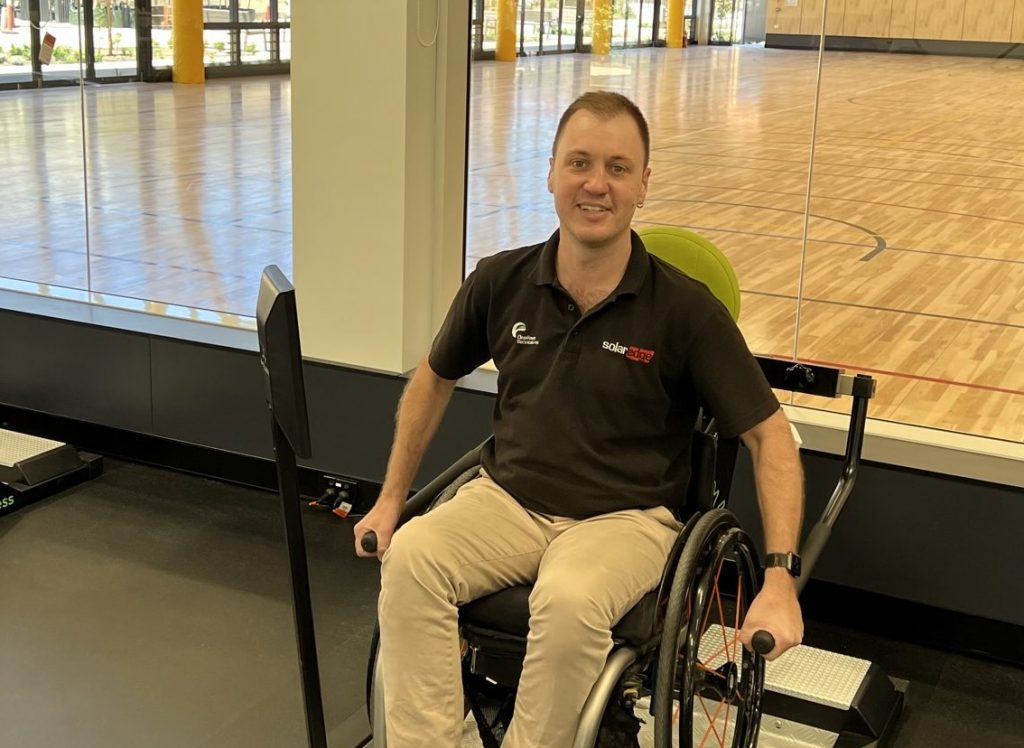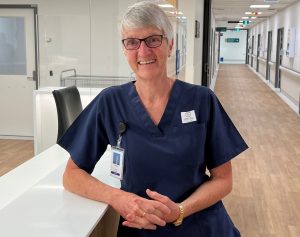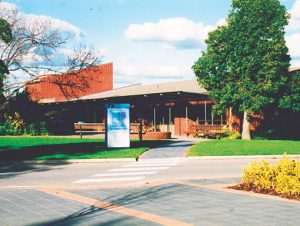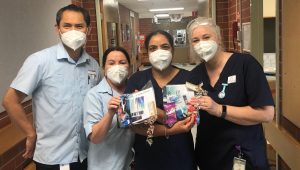The new 48-bed purpose-built spinal cord injury and brain injury rehabilitation hub now open at the Repat Health precinct will support the therapy, wellbeing and recovery of patients across Australia’s central corridor through the delivery of an enhanced range of integrated services.
Co-designed by staff, patients and families, the facility features a rehabilitation gymnasium, café, town square, as well as comprehensive outpatient and speciality rehabilitation programs delivered by a multidisciplinary team of clinicians.
More than 280 dedicated clinical staff will be located at the Daw Park precinct, with most relocating from Hampstead Rehabilitation Centre where the Statewide Rehabilitation Service was previously located.
Former spinal unit patient Ryan Mann, who was involved in the planning and designing phases of the project, was confident the enhanced amenities and services would be beneficial for patients.
“The new facilities support independence and integration back into the community,” Ryan said.
“This is so important to feel like you can leave rehabilitation and live a normal life.”
Central Adelaide’s Program Delivery Manager for Neuroscience, Rehabilitation and Specialist Medicine 2, Jane de Bruyn, said the length of stay for patients varied depending on the nature of the illness or injury, however most brain and spinal patients remained in hospital for between three to six months, with some staying for as long as two years.
“Our services extend to patients from the central corridor of Australia, taking in SA and NT, and these facilities are a step forward in terms of what has been available,” she said.
“We make a massive difference to the lives of these patients and moving down to the Repat offers better facilities for patients and staff.
“Every patient will now have their own room with an ensuite and be able to access state-of-the-art therapy areas to assist them to maximise their independence and support them to successfully transition to the community.”
Other features include multi-use recreational areas for patients to socialise and be joined by family and friends, a kitchen with height adjustable benches to assist patients to regain food preparation skills and a transition lounge for carers and family members to come and stay ahead of patient discharge.
Four dedicated brain injury patient rooms provide a low stimulation environment, she said.
“Often patients will have cerebral irritation after neurosurgery and too much stimulation can cause them to react to the surroundings,” she said.
“These rooms provide access to a small garden that they can use on their own.
“There are also separate dining areas, so if they are finding it difficult to eat with the other patients there are several rooms set up to have meals in a quiet space.
“And all patient rooms have lights that can be dimmed, as some patients are also quite photosensitive and don’t want a bright light environment.”
Patients can also access the onsite hydrotherapy pool and wheelchair basketball and AFL stadium.
Other health services located within the precinct include a SA Medical Imaging facility to provide patients with a same day onsite service for MRIs and CT scans.
Specialised allied health clinics focusing on helping patients reach maximum independence and return to a fulfilling role in their community following their injuries will begin next month, offering about 5000 clinic appointments and 200 medical outpatient appointments each month.
The outpatient clinics encompass general spinal and brain injury rehabilitation, seating (to prescribe and adjust custom made wheelchairs), driving, pain, urology, wound clinics, neuropsychiatry and vocational planning.
The spinal outreach service, which works with patients after they return home to provide post-acute care including assisting them to find work and volunteer opportunities, will also be based at the Repat precinct.
General rehabilitation services will remain at the Hampstead until the new $314 million clinical services building is completed at The Queen Elizabeth Hospital in mid-2024.



